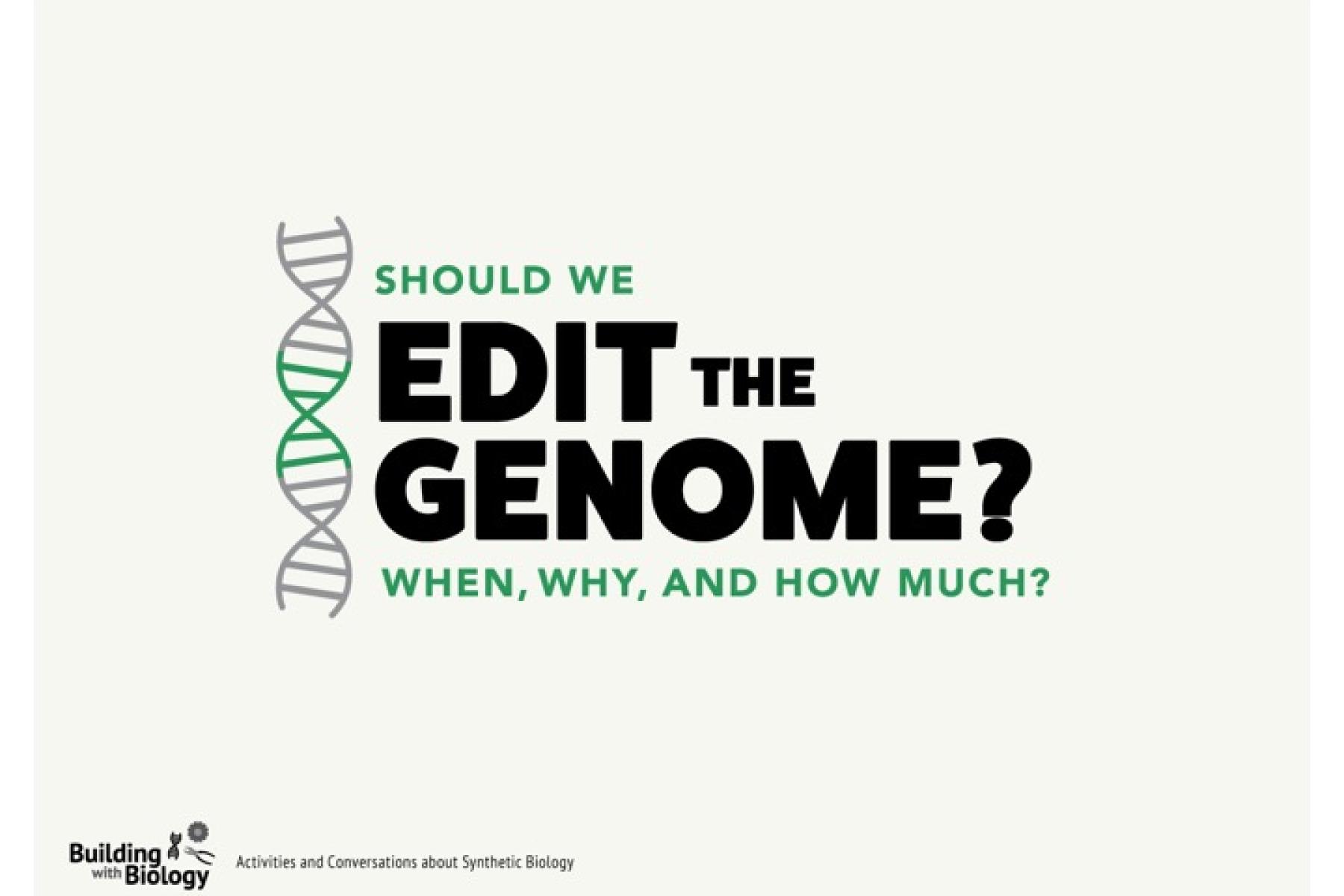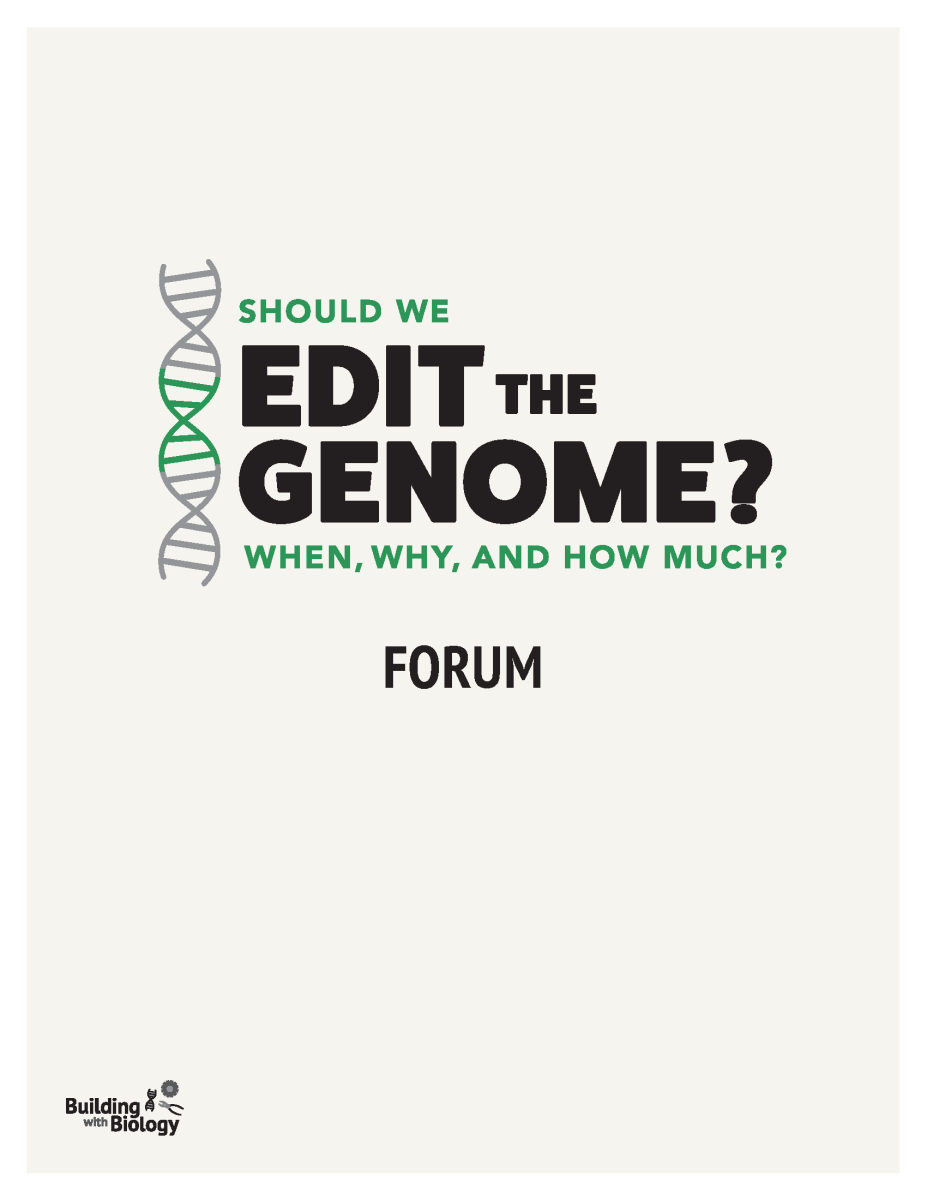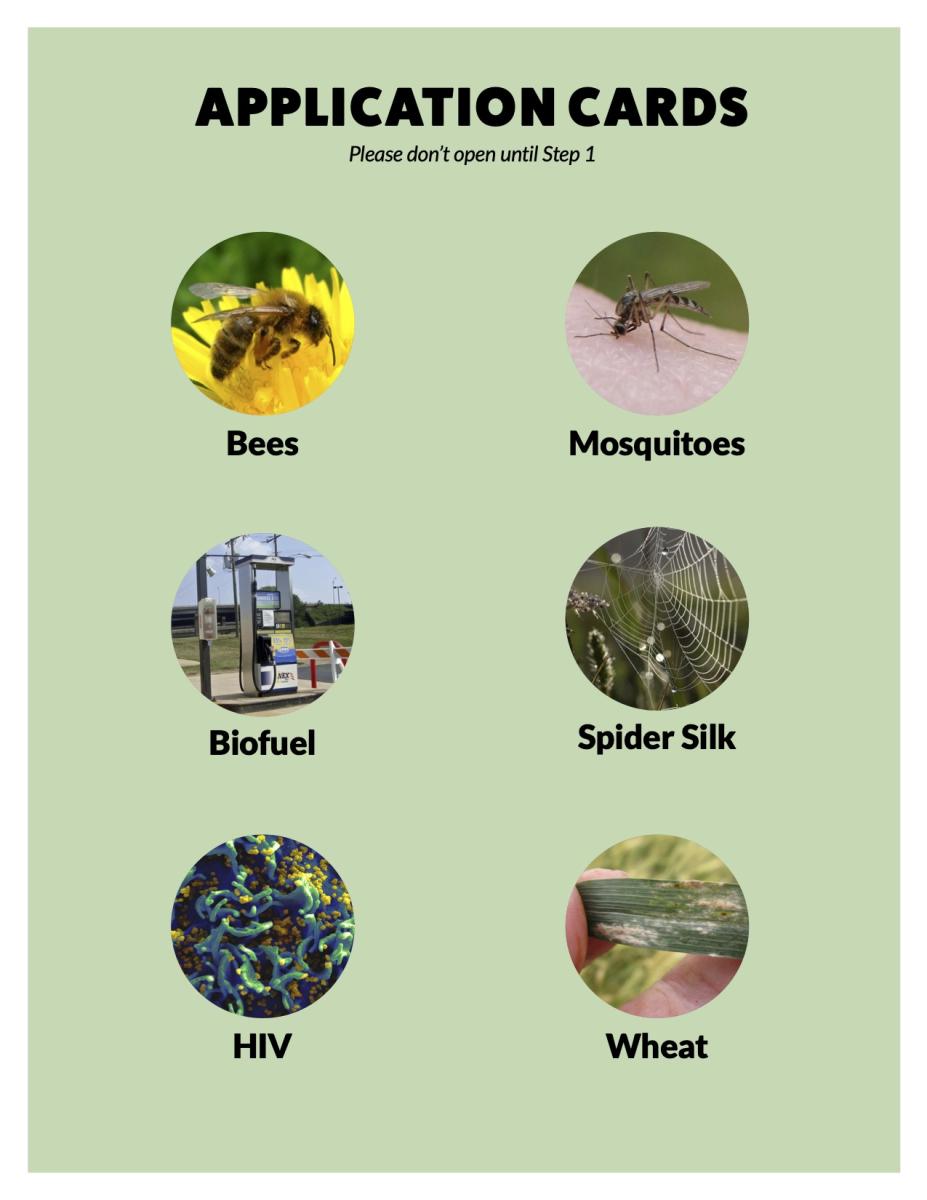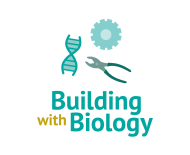DESCRIPTION
New tools—like "CRISPR"—are making it possible to edit DNA with great precision. Soon, we will be able to accurately alter targeted sections of the genome of other animals and plants, as well as our own DNA. But should we? In this forum, participants can discuss the positive and negative possibilities of altering genomes, along with their own hopes and fears around the technologies of synthetic biology.
DESCRIPTION
New tools—like "CRISPR"—are making it possible to edit DNA with great precision. Soon, we will be able to accurately alter targeted sections of the genome of other animals and plants, as well as our own DNA. But should we? In this forum, participants can discuss the positive and negative possibilities of altering genomes, along with their own hopes and fears around the technologies of synthetic biology.
OBJECTIVES
LEARNING GOALS
All new technologies present inherent risks, opportunities, and benefits for different people.
Changing the genes of an organism has been possible for a long time, but new methods and technologies raise new societal and ethical questions.
Everyone has valuable perspectives and views to add to the conversation.
DOWNLOAD FILES
- Building with Biology - Forums manual (PDF)
- Building with Biology - Should We Edit the Genome forum guide (DOCX)
- Building with Biology - Should We Edit the Genome forum conversation countdown slides (PPT)
- Building with Biology - Should We Edit the Genome forum sign (PDF)
- Building with Biology - Should We Edit the Genome forum CRISPR background (PDF)
- Building with Biology - Should We Edit the Genome forum list of applications (PDF)
- Building with Biology - Should We Edit the Genome forum application cards (PDF)
- Building with Biology - Should We Edit the Genome forum instructions (PDF)
Credits
Museum of Science
This material is based upon work supported by the National Science Foundation under Grant Number DRL 1421179. Any opinions, findings, and conclusions expressed in this material are those of the authors and do not necessarily reflect the views of the National Science Foundation.
Creative Commons Attribution Non-Commercial Share Alike 3.0 United States (CC BY-NC-SA 3.0 US).
View more details

NISE Network products are developed through an iterative collaborative process that includes scientific review, peer review, and visitor evaluation in accordance with an inclusive audiences approach. Products are designed to be easily edited and adapted for different audiences under a Creative Commons Attribution Non-Commercial Share Alike license. To learn more, visit our Development Process page.




